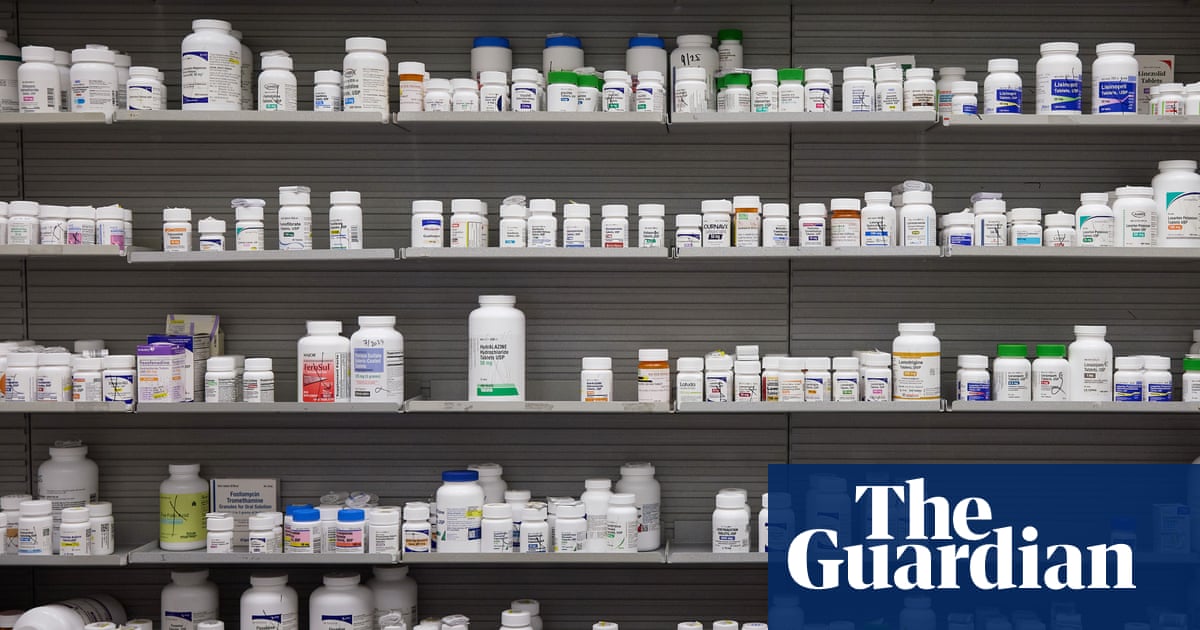The European pharmaceutical industry has urged Brussels not to retaliate if Donald Trump brings in threatened tariffs on imported drugs, amid fears he could impose the levies as early as next week.
The US presidentsaid last weekthat the sector-specific tariffs were coming “very soon”. There is concern in Brussels that he could impose them imminently to give himself further leverage ahead of his self-imposed 9 July deadline for trade deals with the EU and about 60 countries.
At a briefing in the Belgium capital on Thursday, the president of the European Federation of Pharmaceutical Industries and Associations said it would hurt everyone if the EU hit back with its own import duties.
“We’re shipping a lot of exports out of the US into Europe,” Stefan Oelrich said. “If we add tariffs to that, it’s going to be negative for both sides. If we reciprocate on tariffs, it’s just a bad idea. It’s a bad concept.”
The dynamics of the EU’s negotiations with the US remain finely balanced. France and Germany both back a quick UK-style deal and many other member states, particularly the Baltic nations, are keen to build on warmer relations with Trump after his“big win” at the Nato summitover increased defence spending, as they want to keep the president supporting Ukraine.
With the clock ticking, speculation is mounting that the EU will do a thin deal on automobiles and steel – similar to thebilateral agreementbrokered by Keir Starmer in May, which comes into force on Monday – but with no optimism in the pharma industry that it will be included.
Oelrich said: “There’s no specific ask [of the US] other than … to the degree possible to limit trade barriers to zero, which would be the ideal case for us and/or something similar to zero.Tariffswill increase the cost of medicine and care. Tariffs will also create, ultimately, higher costs to patients.”
After EU leaders met on Thursday, the German chancellor, Friedrich Merz, urged the EU to do a“quick and simple” trade dealrather than a “slow and complicated” one. The French president, Emmanuel Macron, said he wanted a quick and pragmatic agreement but could not accept terms that were not balanced.
Oelrich, who is a member of the board of management at the German pharmaceutical company Bayer, also called for a series of reforms on financing, pricing and regulation of drugs, saying such changes could help to restore Europe’s former lead in research and development of drugs.
His call comes amid fears that the EU is losing out to the US and, increasingly, China, which outpaced Europe in 2023 as an originator of new active substances, with 25 brought to the world market, compared to the EU’s 17 and the US’s 28.
Oelrich said data showed that a quarter of drugs in the past 10 years approved by FDA in the US had not made it to Europe because of non-tariff barriers, such as differing national regulations and pricing. “Many of the biotech companies are not even bothering engaging in Europe. For them it makes no sense,” he said.
Sign up toBusiness Today
Get set for the working day – we'll point you to all the business news and analysis you need every morning
after newsletter promotion
Among the other non-tariff barriers he cited were practices in the industry known as “clawbacks”, whereby governments in large economies including France and the UK agree a specific budget for procurement of particular drugs. But any surplus used in hospitals and clinics is paid for by the pharma companies as a clawback.
“It’s totally senseless. And that’s happening in Europe, and that needs to stop. I could name you endless countries that actually are doing this in Europe,” he said.
“What happens too much in Europe is that the richest countries would like to align to the lowest prices in lower-equity countries … this leads to a situation which is unsustainable.”
